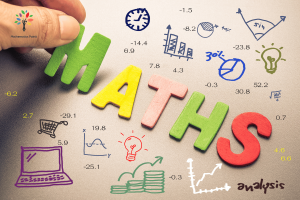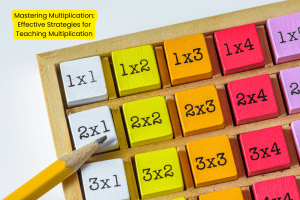Mastering math might require way more than just attending lectures and completing your assignments . It is all about development of effective study habits and techniques customized to your individual learning requirements. In this guide, you can learn everything about the importance of developing study habits. Mathematics is a subject that requires consistent practice and problem solving skills. So developing effective study habits is very important to master math because it helps you improve your retention and application of mathematical concepts. The effective study techniques allow deep understanding of the mathematical concepts by engaging actively with material instead of passively consuming information. You must know that by actively practicing problem solving techniques you can develop critical thinking and analytical skills important for tackling complex math problems.
Understanding your learning style
Every individual has a unique way of learning and processing information. You need to understand your learning style as it can significantly improve your math study sessions by allowing you to customize your approach to match your preferences and strengths.
- Visual learners basically prefer to learn through visual aids like graphs and charts. If you’re a visual learner you can benefit from seeing information presented in a visual format as it helps you better comprehend and retain the concepts.
- If you’re an auditory learner then you learn best through listening and verbal instruction for you can prefer explanations delivered orally and you might benefit from discussing concepts with others or listening to lectures and podcasts.
- Lastly if you are a kinesthetic learner then you might learn best from hands-on activities and physical experiences. You might prefer to engage with material through movement touch and manipulation and you might benefit from using manipulatives or conducting experiments.
Establishing a structured study routine
Consistency and structure is very important. Effective math study session: a structured study routine helps you maintain focus, maximizes your learning efficiency and fosters long term retention of mathematical concepts.
- A structured study helps you eliminate distractions and also maintain focus during sessions when you know when and where to study you can create a conducive environment for concentration and deep learning.
- Consistently dedicating time to math practice allows for regular reinforcement of different concepts and skills. The reputation will help you solidify your understanding and also improve retention with time.
- So establishing a structured study routine cultivates discipline and self motivation by committing to a regular study schedule you can develop good study habits that contribute towards academic success.
- When your study schedule is set there is a minimum likelihood of procrastination. When you know that you have a dedicated time for math practice every day you are least likely to put off studying until the last minute.
Active learning strategies
Active learning techniques are highly effective for engaging with math concepts actively fostering deep connection and understanding. Active learning is all about actively engaging with the course material through activities that promote critical thinking, problem solving and participation. The active learning techniques will help you develop a deep understanding of mathematical concepts and improve your problem-solving skills.
- You need to actively take notes during lectures, read assignments or online tutorials. This will help you reinforce learning and also help you in information retention. Fully effective note taking includes summarizing key points, optimizing information and annotating examples.
- Furthermore you need to ask questions. Whenever you encounter a concept that you don’t understand or need clarification you should not hesitate to ask queries. This must be done during class or one to one sessions with instructors or tutors.
- Actively solving math problems is one of the most effective ways to learn and reinforce mathematical concepts. Instead of passively watching someone else solve problems you can actively engage in problem solving.
Utilizing resources effectively
For successful math study you need to use effective resources. You can use different resources to gain new perspectives and deep understanding of mathematical concepts.
- Textbooks are a valuable resource for learning and practicing mathematical concepts. They can provide you with comprehensive coverage of course material. You need to choose a textbook that aligns with your course syllabus and learning objectives. Additionally, you need to pay attention to the organization and structure of the textbook besides supplementary materials on online resources available.
- The internet offers you plenty of services for math study including tutorials, practice problems and interactive exercises. The online resources can provide you additional explanations and alternative perspectives. You can explore online tutorials like video lectures.
Practice, practice, practice
Regular practice is very important for mastering math concepts and developing strong problem-solving skills. Mathematics is a skill based subject that requires regular practice to achieve pro efficiency. Whether you are learning new concepts, mastering problem solving techniques or preparing for exams, consistent practice is very important.
- You must know that regular practice helps you reinforce learning and also solidified understanding of mathematical concepts start by applying concepts repeatedly you can deepen your knowledge and build confidence in abilities
- Math is fundamentally about problem solving. Regular practice allows you to develop and refine your problem solving skills.
- Practice helps you improve your retention and recall of mathematical information. By reviewing and applying concepts regularly you can encode information more effectively into your long term memory making it very easy for you to recall whenever you need it.
- Practice exposes areas of weakness in understanding allowing you to identify and address gaps in your knowledge. By encountering challenges and making mistakes you can learn from your errors and gain insights into areas that require further study.
Breaking down complex concepts
Mathematics can often present complex and daunting concepts that might be overwhelming at the first glance. By employing effective strategies for breaking down the complexities into smaller more manageable parts you can gain a better understanding and mastery of the mathematical concepts.
- You need to start by identifying the key components of the complex concept or problem break it down into basic elements and operations
- You can furthermore use visual aids like diagrams and graphs to visualize the concept or a problem. Visual representation can help you clarify your relationship between different components and make abstract ideas more tangible.
- Additionally you need to look for connections between the complex concept and other mathematical topics that you have already learned. Now you need to relate it to a familiar concept and principles to build on your existing knowledge base
Seeking help when needed
- Even with the best study strategies you might encounter challenges or difficulties with understanding some math concepts. In such cases you need to seek help from your teachers, tutors or classmates.
- You must know that seeking help allows you to clarify misunderstandings or confusion that you might have about specific concepts. By asking questions and seeking clarification you can address misconceptions.
- Teachers, tutors and classmates can provide customized support tailored to your specific requirements and learning style. Whether through one and one learning or small group discussions, you can receive targeted assistance to overcome challenges.
- Seeking help and receiving support can improve your confidence and self esteem in the mathematical abilities.
Reviewing and reinforcing learning
Regular review and reinforcement of previously learned math concepts are very important for solidifying understanding and maintaining proficiency with time. By revisiting the previously learned material you can internalize concepts more deeply and make connections between different topics.
- Reviewing material periodically helps you prevent forgetting and promote long-term retention of mathematical knowledge.
- You need to know that review sessions provide an opportunity for you to identify gaps or weaknesses in your understanding of the math concepts. By reviewing problem areas on challenging topics you can pinpoint areas that require further study.
Staying motivated and positive
Staying motivated and maintaining a positive attitude towards math studies is very important for success and academic achievement. You need to set clear objectives for your math study like improving problem solving skills, mastering concepts or achieving some grade.
- You need to break larger goals into smaller more manageable steps or milestones. Furthermore you need to focus on achieving one step at a time and celebrate each accomplishment along the way.
- You must find personal relevance more significance in your path study by connecting it to your interests, passions or future goals. You can use planners calendars or digital tools to schedule your study sessions, set deadlines and monitor their achievements.
- Furthermore you must cultivate a positive attitude towards math study by focusing on your strengths and achievements instead of just dwelling on mistakes or setbacks. So you need to approach the challenges with optimism and preserve knowing that every obstacle is an opportunity for you to grow and learn.
By following all the tips and strategies you can always be motivated. Furthermore, you must know that success in math requires effort, dedication and a resilient mindset. You can achieve your objectives and excel in your mathematics journey when you have the right mindset and approach.






